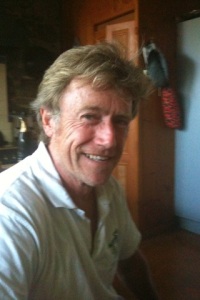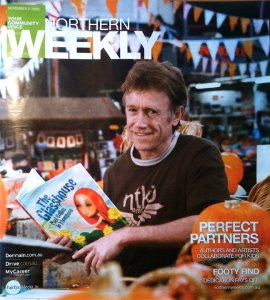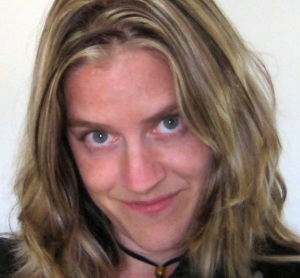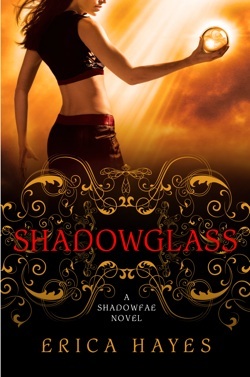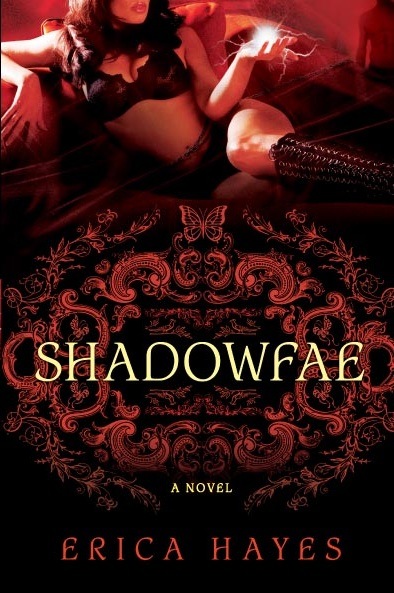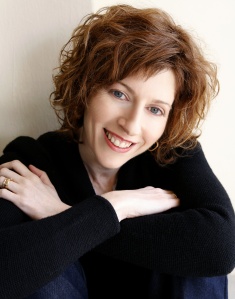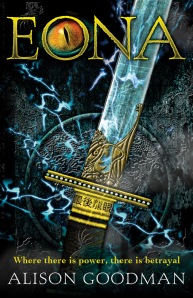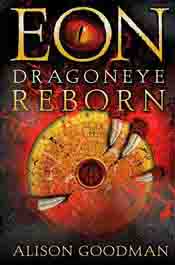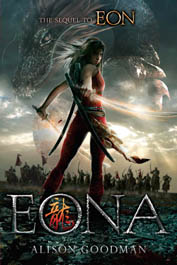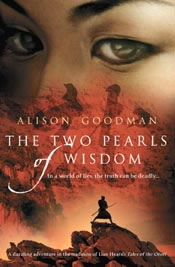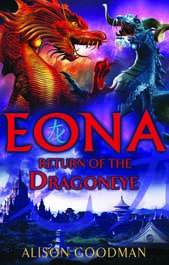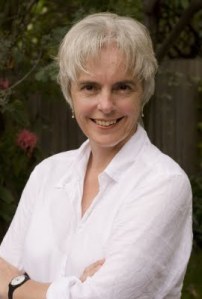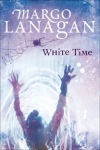This was cross-posted to the ROR blog. Instead of a writer, this time I’m interviewing Indy Press Powerhouse, Alisa Krasnostein.
Alisa Krasnostein is an environmental engineer by day, and runs indie publishing house Twelfth Planet Press by night. She is also Executive Editor at the review website Aussie Specfic in Focus! and part of the Galactic Suburbia Podcast Team. In her spare time she is a critic, reader, reviewer, runner, environmentalist, knitter, quilter and puppy lover.
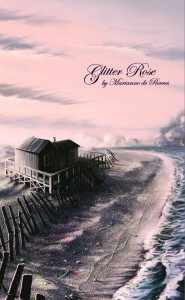 Q: First let me say mega congratulations on being a finalist in the World Fantasy Awards (courtesy LOCUS) in the Special Award Non-Professional section for your work with Twelfth Planet Press. I imagine you’ve been popping champagne ever since you found out. Did you have any inkling this was coming?
Q: First let me say mega congratulations on being a finalist in the World Fantasy Awards (courtesy LOCUS) in the Special Award Non-Professional section for your work with Twelfth Planet Press. I imagine you’ve been popping champagne ever since you found out. Did you have any inkling this was coming?
Thank you! My nomination was totally unexpected and took me completely by surprise. I’m very excited because I was already planning on attending World Fantasy Con in San Diego.
Q: I was involved in Indy Press in the late 70s early 80s so I know how much work and money goes into this. If you’d had any idea that you’d be ‘working longer hours on the press than my day job and I still don’t have enough time in the week to get to everything that needs to be done.’ – (See full interview on Bibliophile Stalker) – would you have jumped in with as much enthusiasm?
Interesting question. I’m not afraid of hard work. I definitely lean towards the workaholic. I think also, being an engineer has trained me to get absorbed and focused on the task at hand. And the amount of time I work and the amount of work I create for myself is definitely self-inflicted. And I hear I can dial it back at any point in time if I want! I love indie press more now that when I first jumped in and I respect and appreciate the people who contribute to the scene even more so now that I know how much work and dedication and talent goes into everything that gets published. And I also believe that we are limited only by the passion, time, commitment and hard work that we put in. So. No pressure. And no regrets.
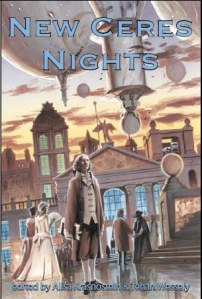 Q: And following on from that, if you could go back and give yourself advice about starting Twelfth Planet Press, what would that advice be?
Q: And following on from that, if you could go back and give yourself advice about starting Twelfth Planet Press, what would that advice be?
The number one thing I regret is not taking my business more seriously from the start. My advice would be to set up my small press as a small business from the beginning and not rely on a box of receipts or a papertrail for forensic auditing later. I set the financial and business side up several years in and that was most definitely one of the most painful things to sort out. There’s so much more to writing and editing and publishing than the creative side and I would advise myself, and anyone jumping in (both at the publishing and the writing ends), to get a basic handle on accounting, legalese to read and understand contracts and basic business advice (like if you need an ABN and how to structure your business – will you be a sole trader or a company and what does that mean anyway?) .
Q: You did a post for Hoyden About Town on The Invisibility of Women in Science Fiction. It’s obviously a subject you feel strongly about. Is Twelfth Planet Press seeking to address this issue with affirmative action?
Not in any formal or mandated way. Overall, I don’t have a gender imbalance issue at Twelfth Planet Press – I buy what I like and the best stories that are submitted to me. And funnily enough, that gender breakdown is different to the general norm (though that’s not true of my novella series).
The Twelve Planets – twelve four-story original collections by twelve different Australian female writers – is a project that came from a place of realising, at the time of idea conception, how few female Australian writers had been collected. That’s changed during the time of project development. But the Twelve Planets remains a project that will release over two years close to 50 new short stories written by women. And that’s something that I’m really proud to be doing.
 Q: Twelfth Planet Press has had some remarkable wins for a new, small Indy Press. There were six finalistings in the Aurealis Awards this year. Two finalistings on the Australian Shadows Award. And Tansy Rayner Roberts’ novella Siren Beat won the WSFA Small Press Award for 2010. This novella was part of a series of back-to-back novellas that Twelfth Planet Press released. It’s notoriously hard, from a writer’s point of view, to sell a novella to a publisher. Why did TPP start producing BtB novellas?
Q: Twelfth Planet Press has had some remarkable wins for a new, small Indy Press. There were six finalistings in the Aurealis Awards this year. Two finalistings on the Australian Shadows Award. And Tansy Rayner Roberts’ novella Siren Beat won the WSFA Small Press Award for 2010. This novella was part of a series of back-to-back novellas that Twelfth Planet Press released. It’s notoriously hard, from a writer’s point of view, to sell a novella to a publisher. Why did TPP start producing BtB novellas?
Thanks, I was particularly pleased with our Aurealis Awards shortlistings this year coming after seven shortlistings last year. It feels like validation for some of the choices that I’ve made particularly in terms of the direction I’ve taken. And the win from the WSFA was just unbelievably exciting. I’m so proud of the work that Tansy Rayner Roberts is producing at the moment.
I really wanted to have a product to sell at a particular price point, around the $10 to $15 mark. That was really the place that I started at for the novella doubles. I personally love the novella length, especially for science fiction and I loved the idea of paying homage to the Ace Doubles. I especially loved the idea of pairing two totally unrelated works and throwing them into a package like many of the Ace Doubles did. From a gambling sense, if you love one and not so much the other, that’s not a bad deal for $12. And from a publisher’s point of view I like the idea of perhaps enticing readers to find new or unknown to them writers or be exposed to a new genre by buying a double for one of the stories and getting the other one as a bonus. If I make the pairs right!
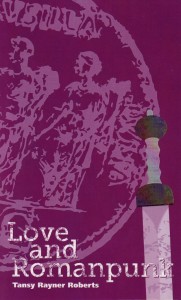 Q: An editor once said to me, I can’t tell you want I want, but I’ll know when I see it. This is incredibly frustrating to a writer. Can you tell us what you want?
Q: An editor once said to me, I can’t tell you want I want, but I’ll know when I see it. This is incredibly frustrating to a writer. Can you tell us what you want?
Only that I’ll know when I see it. Sorry! But yeah, we look for what we aren’t expecting, what is outside of what everyone else is writing, that breaks new ground and feels fresh, that stands out from the pack. What I want is the project that stands out cause it’s not like all the other books on the shelf. I specifically look firstly for really solid writing – writing that is unpretentious and doesn’t get in the way of the story. And then I want to be emotionally or intellectually moved or changed by the work. I look for stories that demand my attention and then hold it. I look for stories that tell me something I didn’t know before – about myself, or about society or humanity. I look for a rewarding reading experience. So. Not much.
I’m very busy and I deliberately choose to read submissions when I’m in a bad mood and whilst doing something else. I want what I’m reading to demand attention, to demand I put everything down and just read it to the end.
Q: A finalist placing in the World Fantasy Awards has to raise the profile of Twelfth Planet Press. Where would you like to see TPP in five years time?
I’d like to see us with wider distribution in brick and mortar bookshops all over the place (long live the bookshop!) and being in a position to pay pro rates for writing, art, design and layout. I’d like to see us pushing genre boundaries and continuing to publish top quality fiction by writers at the top of our field that inspires, engages and entertains.
 Q: On a personal note, where would you like to see yourself being career-wise in five years time?
Q: On a personal note, where would you like to see yourself being career-wise in five years time?
I’d like to be working full time for Twelfth Planet Press.
Follow Alisa on Twitter @Krasnostein
Hear the podcasts on Galactic Suburbia
Hear the TPP Podcasts.
Catch up with Alisa on Linked in
Drop by the ASIF Website.


